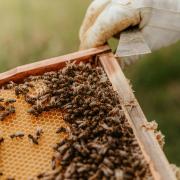
Autism is a mental condition that is on the rise throughout the world with over 1 in every 100 people having the syndrome in the UK alone. I talked to Cathal Owens, Deputy Headteacher of Springhallow special needs school, to get a deeper understanding of the problems and climaxes of a young person’s life who suffers from autism.
What is autism?
Autism is a lifelong condition that impairs someone in their social life, in their communication life and in a way that they see and understand the world. Somebody with autism typically might be quite withdrawn, self-centred and delayed in developing their communication.
What are some of the challenges a young person with autism might face?
Somebody with autism typically won’t have sympathy for how other people feel so it’s difficult for them to work as part of a team because they won’t be able to read facial expression or body language and are very literal in what they understand. So being part of a bigger team can be very difficult.
How can people help?
We all need to understand autism a little bit more. Sometimes people think that people with autism are cold or rude or not friendly or even badly behaved but that’s because they have social difficulties and communication difficulties and find it very difficult to read the signals we send out to each other and so they may not always get all of the social clues and cues we read from each other. Sometimes they can come across as isolated or inward-looking or prefer to be alone and that’s difficult when a business works best when people work as a team.
Do you personally know of any people, with autism, who have had success in their life?
I do – I know one young person who is the manager of a train station. When he was young he found communication and social interaction very difficult but he loved trains and timetables so eventually, he got a job with British Rail. Because he loves trains and knows them so well he was able to understand and memorise timetables and train routes so his job is to work at Maidenhead train station giving advice to travellers who want to get from A to B. He doesn’t have to look at computers; he doesn’t have to look at books, he remembers it all because that’s his very special interest.
What impact does having an autistic family member have?
It would depend on how severe their autism was but inevitably it’s going to have a big impact on the family. The family is very unlikely to know much about autism until it comes into their family, they may need to learn sign language, they may need to learn behaviour strategies to support that young person and they may have to re-adjust their expectations for that young person as well because typically someone with autism will find it more difficult to be successful in the world.
What would you like to see happen in the future?
That we all understood more about the culture of autism. We can’t cure autism and people with autism tell us often that they would rather not be cured but understood. Education for the young person with autism and how to communicate better and learn well and education for the rest of the population and that we understand the impact of autism for that young person. Probably for disability beyond autism as well. We are all a little bit scared of disability and autism can look different and strange to the mainstream population. So the answer to that is exposure and education.
Anna Owens, Gumley House School


























